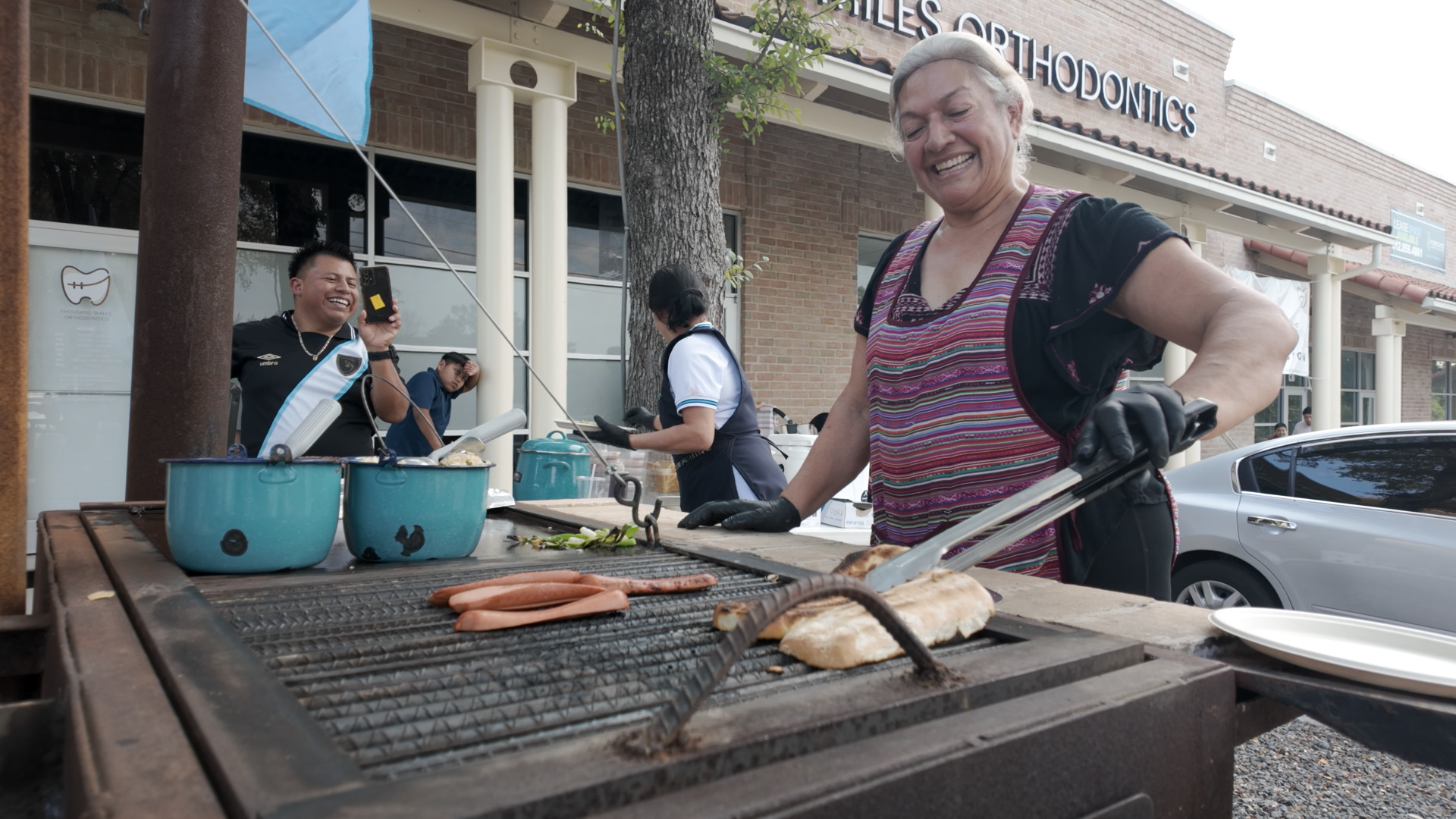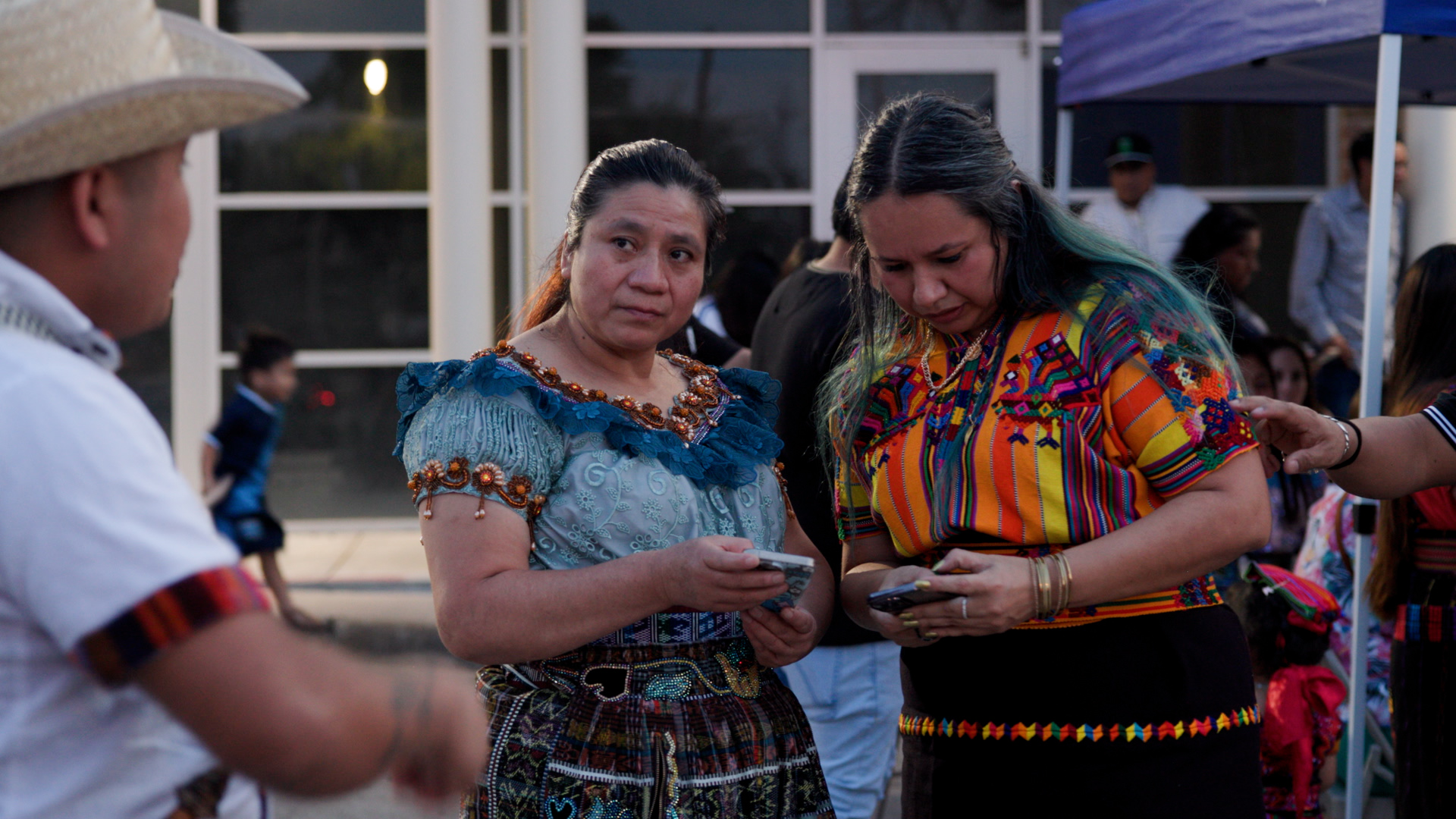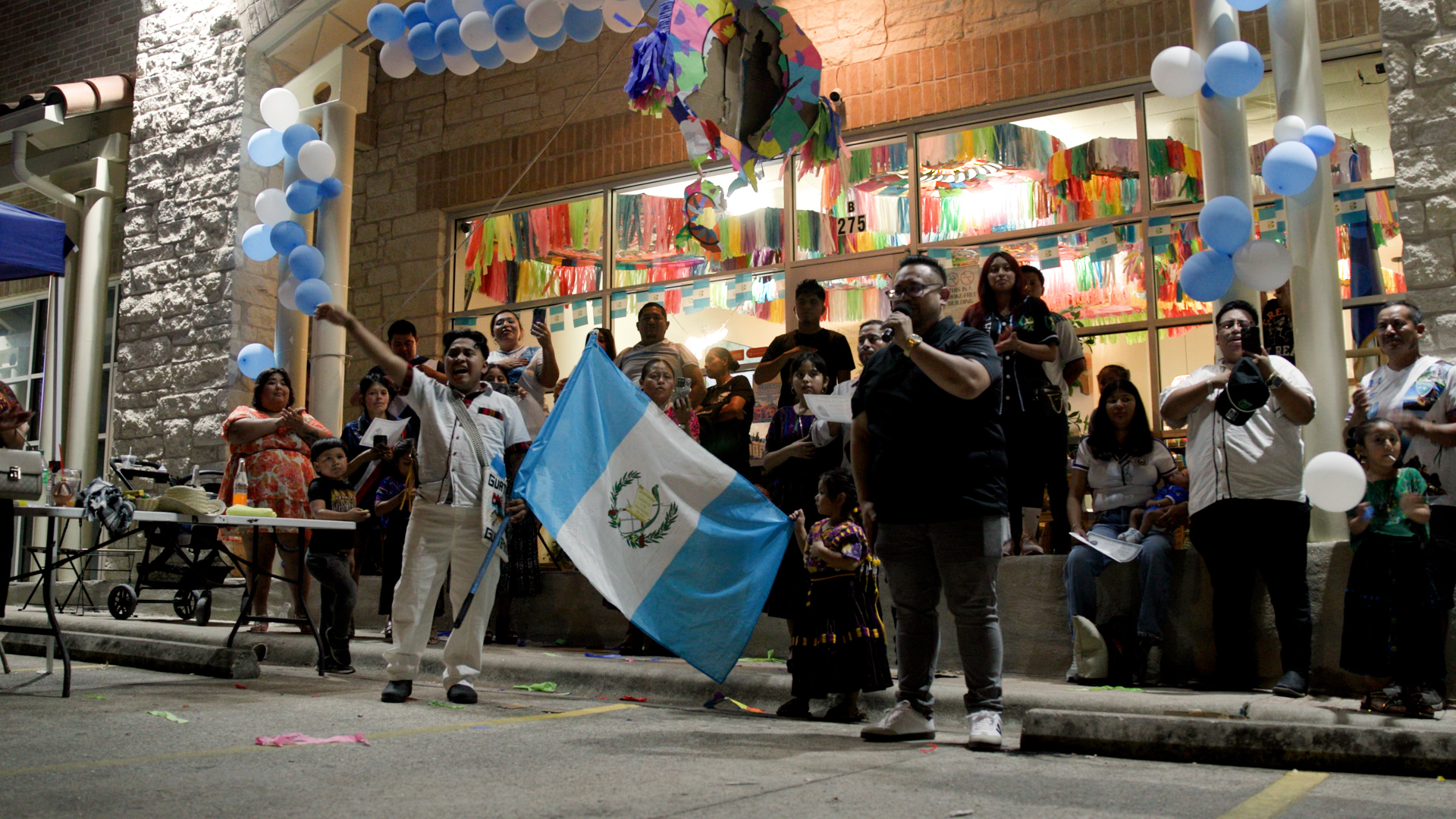Residents Are Worried About ICE. They're Celebrating Their Cultura Anyway
Last month, about 100 people gathered at Marimba’s Guatemalan Bakery and Restaurant on the corner of Baker and Lamar in North Austin’s Rundberg neighborhood to celebrate Guatemalan Independence Day. The restaurant’s ceiling was covered in colorful barriletes — bright, circular kites and outside, the smell of grilled meats filled the air as marimba music echoed through the parking lot.
“My family and [I] have always wanted to… share our culture and history,” said Mynor Alvarado, the restaurant’s co-owner.
The store opened up about a year ago in late December 2024. Alvarado said the restaurant hosting independence day meant a lot for his family, but also for the Rundberg community.
A staff member cooks shucos, a Guatemalan hot dog, on a grill during the Independence Day celebration at Marimba’s.
“In Guatemala, it's kind of like the 4th of July. It’s a lot of parades, a lot of kids events, family activities,” said Alvarado. “Here we're going to do a little smaller scale but still celebrate the food, the music, the culture.”
This past year the business has been doing well, but his friends in restaurant businesses have noticed a trend of decrease in business.
“For the celebration today, we do feel like a lot of people will still be scared to be out and about,” said Alvarado.
Recently, the neighborhood has also seen heightened Immigration and Customs Enforcement (ICE) patrols causing some residents and business owners to worry. This year alone Congress has approved unprecedented spending power dedicated to ICE. Around $170 billion dollars were approved to increase ICE operations and infrastructure. In Rundberg, one of the most diverse neighborhoods in Austin, there are arising concerns about deportation, family separation and racial profiling.
Two attendees check their phones. There has been increased ICE activity across the country after the agency’s funding increased by $75 billion over four years.
But that fear didn’t stop families like Raquel Palma’s from coming out. Palma said it was important for her daughter to see what being Guatemalan means.
“As Guatemalans, we are not afraid to go out because we know we are not doing anything wrong. We came to work, to move forward, to make a future for our families back in Guatemala, and especially for the children who are growing up,” said Palma.
Palma’s daughter took part in the festivities like traditional dancing with her huipil. Many other attendees also wore traditional clothes. Kids broke a pinata and adults sang that national anthem and gave a juramento to the flag.
Maria Alvarado, Mynor’s mother who is originally from Guatemala, worked from behind the grill.
“Even if it’s just a little,” Maria said, “we should keep hope to live day by day despite everything that’s going on. God willing, everything will be okay.”
The night continued with tamales and dobladas while children played with each other around the parking lot. For Alvarado, the event was about more than food and merriment. It was a way to stay connected to home.
A crowd cheers outside of Marimba’s after singing the Guatemalan national anthem. “The sharing of culture and accepting of different ideas is what makes America who it is,” Alvarado says.
“The sharing of culture and accepting of different ideas is what makes America who it is,” said Mynor. “I want to be able to keep on growing and keep on sharing our culture and build a legacy that our family can be proud of.”
Community journalism doesn’t happen without community support.
Got story ideas, advice on how we can improve our reporting or just want to know more about what we do? Reach out to us at news@klru.org.
And if you value this type of reporting, then please consider making a donation to Austin PBS. Your gift makes the quality journalism done by the Decibel team possible. Thank you for your contribution.
More in Arts & Music :
See all Arts & Music posts








Contact Us
Email us at news@klru.org